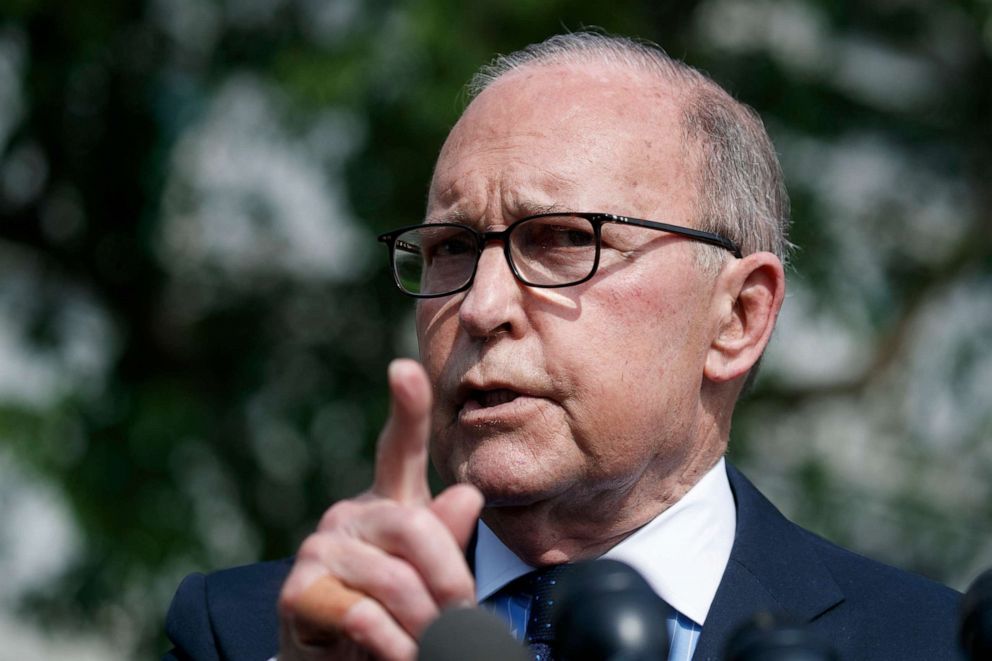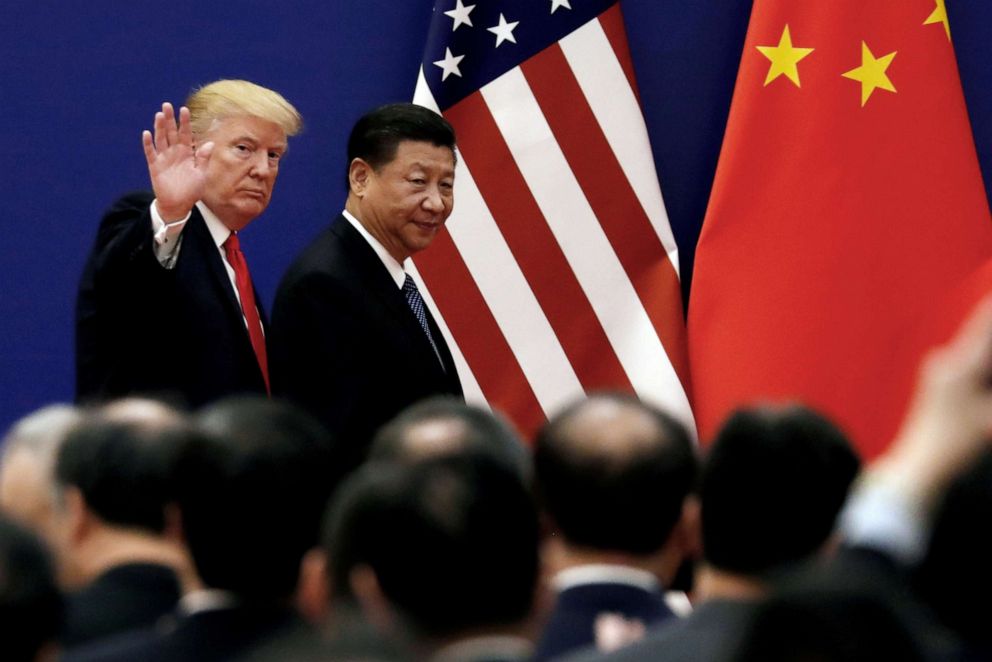China announces retaliatory tariffs as Trump defends US moves
China has delayed implementation of its tariff increases until June 1.
President Trump claimed the United States is in a "very good position" as the tariffs tit-for-tat with China dramatically escalated on Monday and sent markets into a tailspin.
Wall Street suffered its worst day in months following news that China plans to retaliate with tariffs against the United States. The Dow Jones industrial average closed down more than 600 points, and Nasdaq sunk 3.4 percent when the closing bell rang Monday afternoon.
But in the Oval Office, the president tried to soothe concerns and project that the United States is actually in a good spot.
"This is a very positive step. I love the position we're in," Trump said. "There can be some retaliation, but it can't be a very substantial by comparison. And out of the billions of dollars that we're taking in, a small portion of that will be going to our farmers, because China will be retaliating probably to a certain extent against our farmers. "
Trump said he plans to talk about trade with Chinese President Xi Jinping at the G20 in Osaka, Japan, in late June. He also said he plans to meet with Russian President Vladimir Putin.
"We have a very good relationship, maybe something will happen," Trump said. "That will be I think, probably a very fruitful meeting."
China has vowed retaliation in response to U.S. tariffs, and the president said he plans to send a portion of the funds raised by tariffs to American farmers who are bearing the brunt of the trade war.
In a series of early morning tweets, the president continued to falsely claim that U.S. consumers do not need to pay for the tariffs, even though the reality is that the tariffs will be felt by U.S. consumers, who are set to pay higher prices for goods that impacted by the tariffs.
Numerous fact checks, including an ABC News fact check from December, have found the same. In reality, most experts say, tariffs essentially amount to a tax on U.S. importers, which in turn pass the cost on to consumers.
The president also introduced a new argument that consumers can avoid the tariffs by buying non-Chinese goods.
While consumers can choose to buy non-Chinese goods in a number of cases, American shoppers atill feel the impact in the need to alter their buying habits, and will almost certainly have to pay a higher price for a certain goods because of trade dispute.

While economists continue to point out that president's argument that the U.S. consumer doesn't pay for the tariffs is false, the president's own top economic adviser Larry Kudlow has now also openly acknowledged that the U.S. consumer pays the price.
In an interview with Chris Wallace on "Fox News Sunday," Kudlow openly contradicted the president.
"It's the American importers, the American companies that pay what in effect is a tax increase and oftentimes passes it on to U.S. consumers," Wallace said in an exchange with Kudlow.
“Yes, to some extent. Yes, I don't disagree with that,” Kudlow acknowledged, even as he emphasized his point that “both sides' stand to suffer in the trade dispute.
Aaron Klein, a fellow at the Brookings Institution who previously served as a Deputy Assistant Treasury Secretary during the Obama administration, explains that tariffs are essentially a “tax on U.S. consumption of foreign goods."
Klein uses the example of a $300 Chinese-made television he recently bought at Costco to explain the impact the tariffs have on American consumers.
“If the president were to put a 25% tariff on my $300 TV, the TV is now $75 more expensive. So if I pay $375 for the TV, I've sent $75 in tariffs to the Treasury Department,” he said, demonstrating that the $75 price hike is paid for not by China but by the consumer.
The president also sent a tweet directly addressed to Chinese President Xi, warning that China will be “hurt very badly" if you don’t make a deal.
“You had a great deal, almost completed, & you backed out!” Trump tweeted.

The U.S. and China had been making progress toward a final trade deal but the tentative agreement all but fell apart last week after the Chinese sought to make revisions to the deal, the White House said. Chinese negotiators were in Washington on Thursday and Friday for talks. It’s not clear when trade representatives will meet again, but the White House says there’s a good possibility the president could meet with Xi on the sidelines of the G-20 conference next month.
The president’s tweets come as he carried through on a threat to raise tariffs on $200 billion worth of Chinese goods from 10 percent to 25 percent, while directing his economic team to explore possibly imposing new tariffs on virtually all other Chinese imported goods not currently subject to U.S. tariffs.
China announced plans on Monday to implement tariffs on $60 billion worth of U.S. goods imported to China starting June 1 in direct retaliation to the latest U.S. escalation.
“China’s adjustment of tariff-adding measures is a response to U.S. unilateralism and trade protectionism,” China’s State Council Customs Tariff Commission said.
The ongoing trade dispute continued to roil markets Monday, with the Dow dropping more than 500 points on the open following the news that China would move to counter U.S. tariffs.



